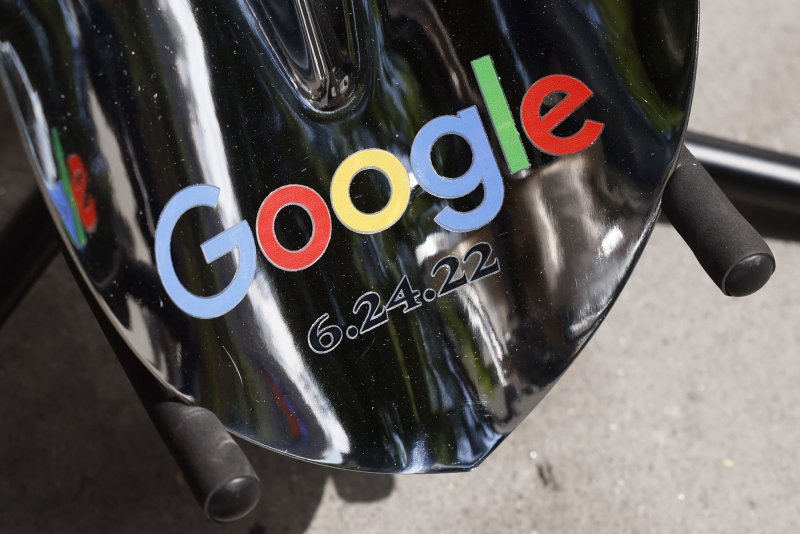Google must remove information from search results in Europe if a person can prove that those results are false, a European court ruled on Thursday. File Photo by John Angelillo/UPI |
License Photo
Dec. 8 (UPI) -- Google must remove information from search results in Europe if a person can prove that those results are false, a European court ruled Thursday.
In its ruling, the Court of Justice of the European Union said the California-based tech giant must delete the results if the information they provide is "manifestly inaccurate."
The case stems from two investment managers that asked Google to remove search results linking to their company. The pair called the information, which criticized their investment model, inaccurate.
"They also requested Google to remove photos of them, displayed in the form of 'thumbnails,' from the list of results of an image search made on the basis of their names. That list displayed only the thumbnails as such, without reproducing the context of the publication of those photos on the referenced internet page," the court said in its review of the case.
Google refused the request, saying it could not verify whether the information was inaccurate.
People who want to scrub inaccurate results from search engines must provide sufficient proof that what is said about them is false.
"The Court requires the operator of the search engine to warn internet users of the existence of administrative or judicial proceedings concerning the alleged inaccuracy of content in so far as it has been informed of such proceedings," the court ruled.
Those wishing to remove search results must provide "only evidence that can reasonably be required of [them] to try to find," the court said.
The "right to be forgotten" falls under the EU's General Data Protection Regulation.















